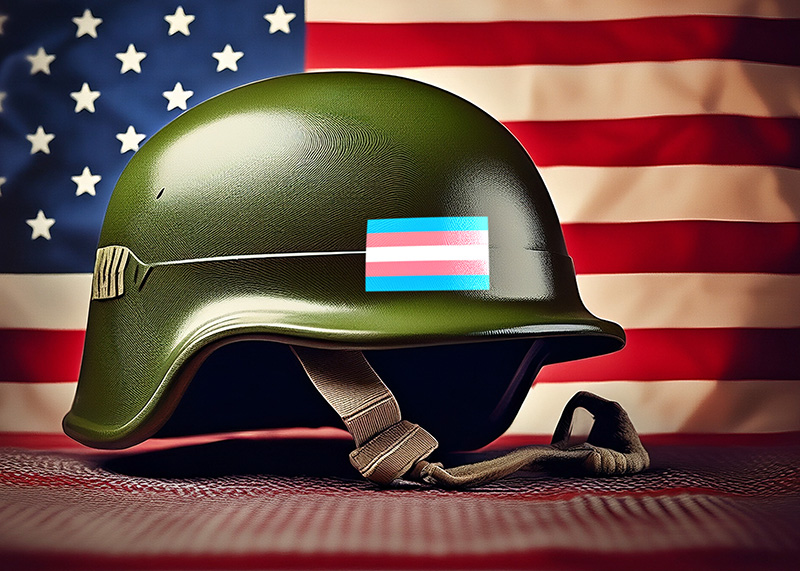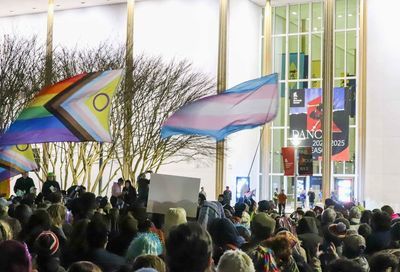Accomplishments and Challenges
Equality Maryland celebrates one victory and lays groundwork for a new battle
Looking back on Maryland’s 2008 legislative session, which concluded on Monday, April 7, Equality Maryland saw reason to celebrate — as well as reason to keep working for change.
”We now have domestic partners recognized by the law and this very small step forward is an important step, but we have a very long road ahead of us until we’ve achieved full equality,” says Dan Furmansky, executive director of the GLBT equal-rights group.
The two bills approved by the General Assembly originally passed in 2005, but were vetoed by then Gov. Robert Ehrlich (R). They provide 11 protections to domestic partners living in Maryland, including hospital visitation rights, the right to share the same nursing-home accommodations and the right to make funeral decisions for each other.
Pointing to the work that remains, Furmansky says, ”Let’s not forget transgender rights”.
Things looked promising last November when the Montgomery County Council unanimously passed a law prohibiting discrimination on the basis of ”gender identity and expression.” But that didn’t sit well with Citizens for Responsible Government, a group of people from Montgomery County opposing the measure in fear that it would blur the lines between male and female restroom and locker-room separations.
”From what I’m reading, the person with gender identity confusion is being protected by what she or he feels he or she is,” ”Lisa G,” a resident of Montgomery County, is quoted as saying on the group’s Web site, www.notmyshower.org. ”So, if I’m in a bathroom all by myself late at night, and a man walks in, I am supposed to be okay with this? This is truly unbelievable, and I’m embarrassed that Montgomery County is even spending its time on this piece of nonsense.”
The group collected about 25,000 signatures for the County’s Board of Elections, in order to place the issue on the November ballot. Equality Maryland hopes to keep it off the ballot and has hired an attorney to challenge the validity of the CRG’s petitions, claiming the group used ”scare tactics” to collect them.
”We’re in litigation right now,” Furmansky says. ”We anticipate we’ll know around July whether or not this will go to the ballot. We think we have a really good chance of keeping it off the ballot. But we’re planting the seeds of an educational and grassroots campaign to win, should this go to referendum in November.”
If Equality Maryland can keep the measure from going to the ballot, ”it goes into law,” Furmansky explains.
It’s a costly effort.
”We’ve spent $50,000 that we didn’t budget for and it’s a drain of our time and resources,” Furmansky says. ”But we’re doing what we do every interim period, which is [trying] to build up our base supporters in key legislative districts, and to glean from what we learned during the last legislative session where we need to focus our energies more.”
For more information about Equality Maryland, visit www.equalitymaryland.org; to read more about Citizens for a Responsible Curriculum, visit www.notmyshower.org.
Support Metro Weekly’s Journalism
These are challenging times for news organizations. And yet it’s crucial we stay active and provide vital resources and information to both our local readers and the world. So won’t you please take a moment and consider supporting Metro Weekly with a membership? For as little as $5 a month, you can help ensure Metro Weekly magazine and MetroWeekly.com remain free, viable resources as we provide the best, most diverse, culturally-resonant LGBTQ coverage in both the D.C. region and around the world. Memberships come with exclusive perks and discounts, your own personal digital delivery of each week’s magazine (and an archive), access to our Member's Lounge when it launches this fall, and exclusive members-only items like Metro Weekly Membership Mugs and Tote Bags! Check out all our membership levels here and please join us today!























